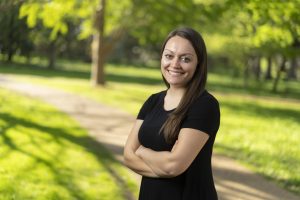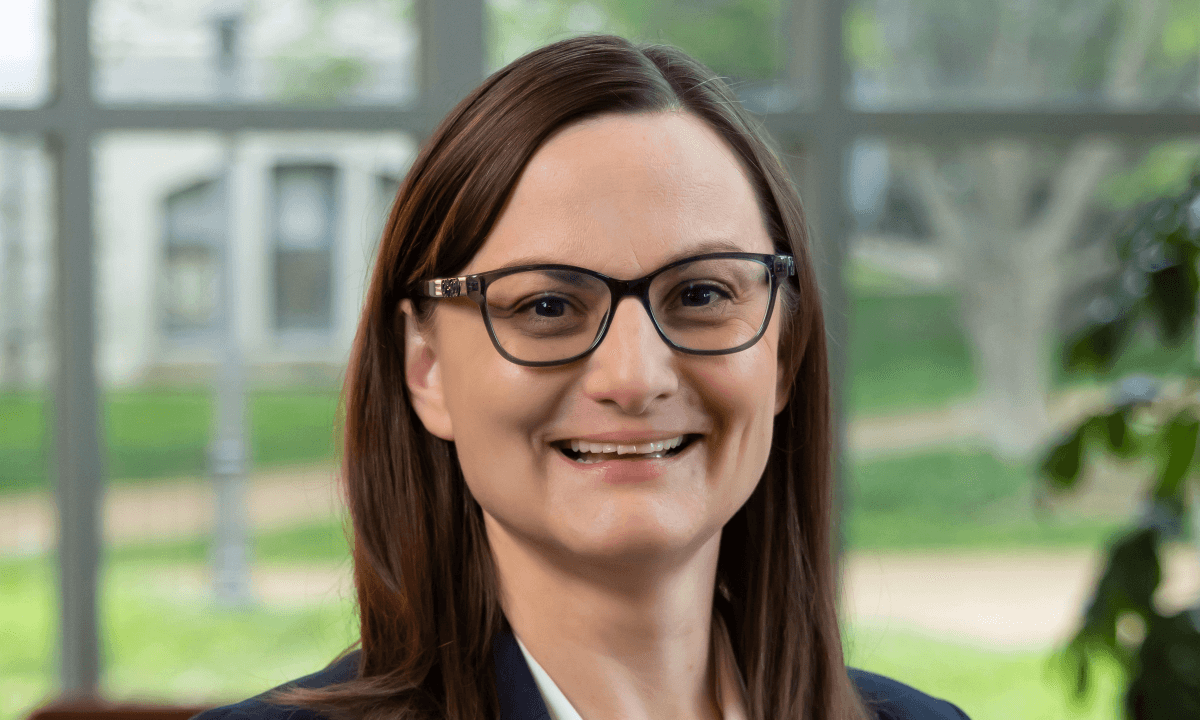Five Vanderbilt Law students worked pro bono over Spring Break at the Appalachian Citizen’s Law Center in Whitesburg, Kentucky. The trip was sponsored by Vanderbilt Law School’s Public Interest Office, led by Assistant Dean and Martha Craig Daughtrey Director of Public Interest Spring Miller.

Emma Harrison ’24 led a team that included 1Ls Kyle Blasinsky, Morgan Peck, Luke Stauffer and Claire Thompson to the ACLC, a nonprofit law firm that promotes health and economic justice for coal miners and communities affected by extractive industries in central Appalachia.
Team members worked with ACLC attorneys to review court documents related to black lung benefits and did legal research to support claims for disability benefits for coal miners with black lung disease, including claims pursued by the spouses of deceased miners. “Many former coal miners who get black lung die before they are able to collect disability benefits,” Harrison said. “The ACLC works with the spouses of these miners to continue the claim for benefits.”
Students also researched potential additional avenues for litigation related to mining on land without the landowner’s consent that caused significant property damage. “ACLC has two prongs: attorneys who work with miners and their families to claim benefits, and attorneys who advocate for mine safety and environmental regulation.” Harrison explained.
For team member Kyle Blasinsky, who is pursuing a J.D./Ph.D. in law and economics, participating in pro bono spring break offered an opportunity to learn about environmental, health, safety and labor law issues and apply the knowledge he’d gained in his first-year Regulatory State and Civil Procedure classes. “I worked on two ongoing cases to aid former coal miners in securing their federal black lung benefits from former employers,” he said. “The trip was a wonderful opportunity to connect with my family’s Appalachian culture, particularly as it relates to mining, and learn more about how federal agencies exercise their adjudicatory authority. I also gained personal and professional relationships with my team members and the ACLC staff.”
ACLC Deputy Director Mary Cromer found the opportunity for the firm’s attorneys to engage with students committed to public interest work invigorating. “So many of the issues we deal with are systemic and seemingly intractable,” she said. “Students bring energy and a fresh perspective to those problems. The conversations I have with students while they’re working help me think beyond our traditional modes of representation, and those interactions help us be nimbler and better serve our clients.”
First launched by Darrius Woods ’17, Vanderbilt’s pro bono spring break program is designed to enable students to gain meaningful legal experience and boots-on-the-ground exposure to public interest work in a variety of settings. In past years, students have advocated for immigrant workers at the Mississippi Center for Justice, supported the nonprofit Appalachian Community Federal Credit in Johnson City, Tennessee, and assisted Atlanta Legal Aid attorneys combatting predatory lending practices, among other projects.
“The pro bono spring break program gives our students, especially 1Ls, the opportunity to participate in the kind of service work that often motivated them to come to law school” said Miller. “We are grateful to our public interest partner organizations who work with us to create these valuable hands-on learning and service opportunities for students.”
Harrison plans to work as a public defender, and she was excited about the opportunity to lead the ACLC team. “I came to Vanderbilt because I want to work with my community as a public defender,” she said. “It was great to learn about and support the ACLC’s work as a 1L.”
Miller’s office works with student leaders to plan and recruit volunteers for the Pro Bono Spring Break trip each fall. Students may also opt to sign a Pro Bono Pledge to volunteer a minimum of 25 hours per year of pro bono legal and social service work.
